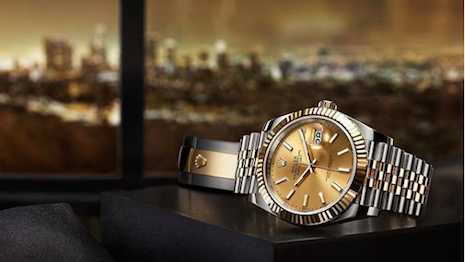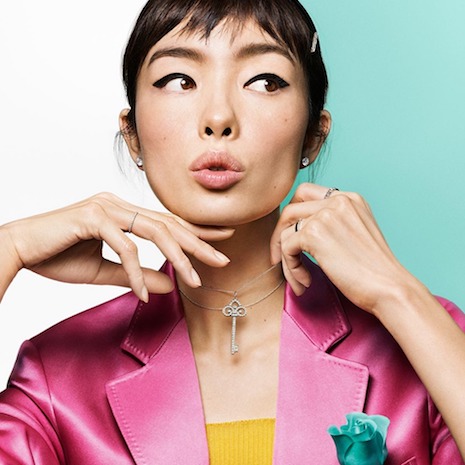Luxury brands on the whole are struggling to establish an emotional bond with consumers, scoring below average in MBLM’s Brand Intimacy 2019 study.
Out of the 15 industries studied, luxury came out second to last ahead of airline and travel brands, slipping from 13th in 2018 to 14th. To maintain their relevancy, luxury brands may need to rethink how they market themselves, with a focus on emotionally connecting with their audience.
"There is probably no single reason luxury brands rank unfavorably in our annual study," said Rina Plapler, partner at MBLM, New York. "A range of possibilities include the brands' appearing aloof and untouchable – the opposite of building emotional connection, a collectively frugal, more casual American culture, limited interactions with luxury brands and potential guilt of admitting you have an emotional bond with a luxury brand.
"Other categories focus on building relationships with consumers and 'court' them in ways luxury brands do not," she said.
MBLM’s rankings are based on a study that looks at what consumers say about the brands that they use.
Intimacy intelligence
Rolex came out on top in the luxury rankings with a Brand Intimacy Quotient of 31. This places the watchmaker on par with the average score across industries, and in 81st place.
Twelve percent of Rolex’s users say they cannot live without the brand.

Rolex's the one to watch. Image credit: Rolex
Among demographics including male consumers, individuals over the age of 35 and those with incomes greater than $100,000, Rolex is the top brand of choice.
In second place is Cartier with an intimacy quotient of 27, placing it in 99th in the cross industry list. Thirteen percent of Cartier’s clients feel they could not live without the brand.
While Tiffany & Co. placed behind Rolex and Cartier, its users feel more passionately about keeping the brand going, with 22 percent saying they could not live without it. Ranking third, Tiffany’s intimacy quotient was 27.
Among luxury brands, indulgence is the top archetype, ahead of characteristics such as nostalgia, identity, ritual or fulfillment. Tiffany had the highest score for indulgence at 48, compared to the average 35 for all luxury labels.
Whereas Rolex succeeds with a more affluent crowd, Tiffany has the strongest bond with those whose incomes are less than $100,000.

Tiffany has a strong indulgence factor. Image credit: Tiffany & Co.
Rounding out the top five are Chanel and Jaguar.
Within the top 10, Jaguar and Land Rover have seen their intimacy quotient fall year-over-year. In 11th place, Hermès also saw its intimacy quotient drop to 8.9.
Luxury brands’ overall Brand Intimacy Quotient is 18.7, behind the average 31 score for all industries.
In general, 8 percent of consumers are currently in one of three intimacy stages with luxury brands, which include sharing, bonding and fusing. In comparison, top rated category media and entertainment has a third of consumers in one of these stages.
Luxury brands fare the worst out of all categories at the sharing and bonding stages, and these brands perform next to worst at fusing. In addition to struggling to get consumers to commit, there is also a lack of trust built between these brands and consumers.
"From a Brand Intimacy performance perspective, Rolex does best with men and those over 35," Ms. Plapler said. "Gucci is favored by millennials. Women prefer Chanel. Tiffany has the highest associations with the archetype indulgence, creating a close relationship centered around moments of pampering and gratification that can be occasional or frequent.
"Cartier has the highest levels of bonding in the category – the middle level of Brand Intimacy, centered on trust," she said. "These findings start to provide some insights on strengths of these brands related to how they connect with consumers."
MBLM posits that luxury brands may struggle to connect with consumers since their marketing tactics differ from those of mass-market brands. Part of this is an aura of exclusivity, which may make brands feel more aloof than accessible.
The report finds that luxury brands’ intimate audience is shrinking, but those who are still customers are highly loyal.
Luxury loyalty
Among luxury brands, French fashion label Louis Vuitton generates the most visibility and passion on social media, as other true luxury players continue to find their social footing.
NetBase’s “Social Media Industry Report 2019: Luxury Brands” reveals that many luxury fashion labels, such as Chanel, Gucci and Prada, have made significant strides in their social media strategy. Luxury brands also continue to enlist influencers and celebrities to reach new audiences (see story).
Customer experience is about consumers’ perceptions of their interactions with a brand, and their memories are largely tied to the emotions they feel throughout their journey.
During LuxeCX/AMCX 2019 on Sept. 25, an executive from Forrester explained the importance of both storytelling and emotion in designing experiences that will illicit a positive response and spur customer loyalty. While marketers often focus on attracting customers and getting them to buy, the real connections and experiences often happen after the purchase (see story).
"Luxury brands, often iconic, can do a stronger job leveraging their nostalgia, one of the Brand Intimacy archetypes, as well as identity, reflecting an aspirational image or admired values," Ms. Plapler said. "Factoring the customer more into the brand’s tactics and campaigns would also build stronger degrees of intensity and deepen emotional bonds.
"Demonstrating greater reciprocity or personalization may enhance the sharing stage of brand intimacy with users," she said. "For customers that are more committed to their brand, finding new ways to leverage or reward their desired behavior could create more emotional connections and decrease the aloofness factor."
{"ct":"khu7CgQp4jQIk9Bbn14teAdcGOLDmiKk9Cm4sqT5LXq9VZkPDijG0Ts\/2pIPHBxznRMi4EplI2DBUVPPb6kasJnpdvsE+g38JoNHTvFBQDgjRsg3DIwHPwsmoQk8B2yPv7wMFzT7ftbc1tjDSJmLM7bG5jHkiTweStCY5JFxANjIGCdFB+iQyZG2UKS5JiHGYnTWpV4B3GDFh+egIbItDxIqJgV\/ftuwrHlYZs+lXaSaYTt9FlduLD5\/7hvJ9wlm1OvK0bBt4WEZOUxF00ranS9wQpqXltNX0QaG+odHPka1ASgq1n6ZRCdtg+qvk9s45ITtsXNwleLMdcuGqWLtU6kMXRe40At1N8TdL93Fj6GF+rPiT9GE4H6teW6zk2uaQ3pkTPOkpImmg3Qr95jlNG7mBRdyVVnP6A0\/gJrfaDsJuMPWufhRrBP7I8FUoxckHHTFm6np04Y6X3ywlNbnsMF34kOwrZjdfCupw1kiRKJ6CANSuSAaLlS0O2NF5k8CjZ2ZdnVtmkPKUynrCRDluF92Rc9VnwjXucZAPgbiEhOoPyccxw9Bo6edG4SNTmw7vrMMqDe6rPvfVdBou6yTCTgC2D4K6QSI89elgKXxCZca1efdiX9zCMprqKC\/FoNt6gSCpM5hj\/EV9naxpS9i1\/CgqROnCF86snHI7GNhBPGKZX\/gPlpBMOyuk56WL4uEC7H4qa3dkBCYTifzR5hBcRfkcSjzhgmk6EEjzToi8P73pKz4IYefTUQP0m4OxuvV5lGJTTpIvRsAcU3nFKOOlAMG52UgrkcGfFLiuxz6Erko7TPjpIPTTfoJy0swv0iE4AIWEpUpXOr5llJJRX1vTE7pxwNVqLA+Gm2crc8a\/J3Z1AUA2qHroc4KdRv65mgBC9zCQTj1FYdguZNFlPrLvaCcOwiuB\/z3Sm9+rbdRRB8h6uIS7Eej8YTnvddJAd0Z1iDcHWpIU8oBik1I9xpfgcC\/QQMvfJWL74zY5Uikpphpr4NgmHID+OVj2wipPAVGqRt0KYDCuvzv\/0vCYsnl8bXlxj1HA51E1IRLuf\/pkwZxOZrr0yRJLezh349OohlNc57QgGjHv5LMuWUX4YD2yZzgSj\/sVpQnB46dqao\/RLcung8FbhKv+nLvM3PQKNf0zKkXww69rW\/qRJB9+eBrH74VnF\/mDRA3\/G2D50m91UIMljVS4P89IEF6gwN788XEAF19H8kbz+FBd\/Gf9BUKS19WIJhQAJmlA6JRs4pRQ0hmehh13Raoe\/P0hZc+Z\/bn1sOB2s+on79l6z35rpmIji0dhKCPbLXCqIaceNOdoiwH0dxvhk9xQpPGv5QZcpYWu\/yt4j5lrGnZ\/xKPFIOfHCc0XwGDEIDd7OZ7A9GVnAsVjlnLmdWvJEjX4e2Q8sNFe0Scqkugruy4eW7l1pDXRtMK324Ewj5njt6WYcBN6IgEqjjnrqrp5nw6I08D1zyX5udxmQxWEUJKjsq70z7aZ\/b7LPvDQBTo6mUPx988VryiUGrixBA1J5Fh0y2peblhPDPta0JcxvoO9VnPKFTGZODsZmBDPhC6eSfN2KWYXHHzsLDHH8OWh4VmmaGSH9\/LKkdWCsSUS\/86kYVbGH\/peyv2aBuuVr3uDFYJ38fM8q2u51EMBGEoKXS2TrWUsu3B9vWd\/KG5HF\/CdZrY6RU8\/FDoGvTIXUzY+cRFCmLkXjKApDUWKQux2MmHgGjH7HoMIx\/XS2T7vdm4+h9SjHRItWdviphMi0\/x3M4sTqyoi877\/6focyOr\/lhC5b3QaitnK+N0JMz6QQtCKWBcBgjcx\/kjmFLFQkGLbMFuIJutxk2mrTmJYrIsDBr9o3W93HfWzcK\/dR0A2\/yY1VEMFAZOHD01sb7qZ\/VuNDQ1gZJbvi\/gC2Iu68RraUHKwjiJmtDHD5yUzmB\/7bb5Gus991uM6ltvrRwJQ2LqQlu2Bb2IUDTCFbblseLx30gVnp+JVNbeXUg2YOn+XM\/OL7I85EY3qnwopSh9nqkMNjsRhD30yyUPGi2+MeaGKMa8VrFEG6\/cVocp0ROOwZPNDayCwd6u3sGYhgZjU3YdLfgFk6\/JKSbVKE1pKKtBHWfqgmWeLF96SfKiX2Lj2IGro7mxKBoVYPIqhLzF7D7xnz8Bc3UTFxFjX3SKwmOZCqDLM2vKRzNGeB+NscGE3Pt+5FILMWEAACcW+sFGOQzsEwDuwFUb5cPdBoX8FtKOA8Og+CrDBrDX3VCnE0kjSCpRzTqtJiQ\/8snWvtw7XG\/rQWV44KMARaiyiSUNo6O41R98vJPV4SDMnXinFZNbSkmSHmjTybTeG0MP+m2irI5Pl3RtvymLuFYkHhOnSeZEyEfF19s8d1CkohpNianCLxp9zY4OiFRQ3fpn+3VeHWpxSxLjdVhsQYm\/CZQCLMG\/i4QUYUTTH\/La1QDXdrb2ObVh005vlR3fLloZYgE4Yqc8Wn+HLA8RXwh4KfEJSwxYeZ8gjbNCtEB6+fI4VC8ExVRq4VudbZzYp0iIZP6fx2p+ljSTNJGPMc5WYIAd6cuRecOUI3VZuq7JS5YdclHnLkg6pe7GTafGMCysZstmv2saljmcMTsCl3l+++gmka0uIyCy\/0FSwBgDONdNGwMock1zZscZqJ5EKlxm+h6sABmbje4qW0CCzZLFJPwYMjpJABiqWILNAIP8BMMkgKnyRzB7eLm4ybI5\/ffZ9X09rIiHEFW9ayF9u6D1trsBmWZYGmUWhrVKRrdgNoi\/n0ZIeHn3OtYggBbiWAJplMeBweKGgTMLeVK1NhjXh6b5\/yassPI4WvhMO\/TspbXop6jZpHDBDS\/h23JR7qfClqm0JLDdUYdVq0IrWd5lVo2+J+oxoHYzAu1nsnUdeYpNoKOk+etxRJURpSzGS3GR52bvgAufPZqilrCJ0u1q1sjzSG+ZivM5ThA0gVk2zhSfZ7Z9pdo9rGtLxpm8DNbnBrPiB2072\/YGlSc6BpNV3SzOVuCe2tkriCiZP5evwx7sZpDIKo2rL4GudMQHLK77XDYeu2Malr4O4cFpcyf6\/ENMqKRxqLPfr1\/WLKFoAIeSirK8H8Gr5IMlaHGFkd7JpPHzBYuDZ\/3uslclT8S5CAsvIM7N2GiKU2RxbmkmPsxvb\/TpoAFFAXFM\/jqr4DH1iuFNY69Njw3TJIngKlZBO4zEEqHMAldaa\/e8PJI5iKMG637hWBLzvlYqqouztql2V8RsJzdEDGporwgahtOmqSfQmk2ZX+K6PFGtC9Q3+iR33VYNgCuSPE9Aj+m0KZ+CbYJ+t2\/92fWyEZWvmAJTl33SEnTP\/l17b2PnMu\/CnqL9mP3Io66sy+yZ7HeFEMU1a5j9W94xfkUasV6dBZpAZhvYFASDS6WMzMWrTIv3esxlFBddIV3MM+NQUP5m0wH9NXhaYiSMsAD0j34RtznfWqqVufIYR9CBxXTf\/GPeZhN2ftbOzjc8BZIUIDhwOWhUDPT+Cm0zlEtH2oi98flMBbAtiAOVSV5WMv2hNWVn\/xOxBgEva8zcI5FM1o68q9jIOE2aQMGJRXJFVnqej6QpBYqIv0F7CwSPhx52amENha42OcxDe1hAUznJFZGCCFGzzoZIWWTl7DHYXaw4C9+OYsqrPlzFDD\/GS\/6xC8ylOcZ4QU9zP1I\/NutLNEIAMh+n5TaqYP5EFA6NnUl7fy2VTYRlr3YGGLhJCC\/y+Zyix8hSwGfN4UpAmBmV6\/4ercNHyxuEIPUKPEa19figymqAlNhzFw7nqSuLk7OV0RvMRb9ZYbjgK3ggSaCfvhDfMqurHLG2N74K+6Cch1LXgeu\/ynBnWPa+8MRzYjk5Pvy2hhDWKLxTNB\/rFpNwRruGs9YdWxkM+nBoImZ\/L+K7Q+zFCZUWX4kdxfvJax\/lhwDRlpQHHDcMB2dHMjCtp1vlP3CN\/9\/4kbvqpWzm\/5aoi68dV0MFQw8UjTCKLoKkD7RhtA7m74S\/uGpLNSFEGxkdjFCY8wYWGkVFpAAns5hxnULzRPzx8FZ5S7kGXpdx+\/YjIM1DQTiG8bPXuaghkRVBhKjHN81K+8gYcEDNaMgcHjFS87O0onlzq0Ld9uZuUjhalzyhtPPThbqAxMceNYwCm5+URRCSz1PYRQ3pJqWAtawvKlrqMdofRbzDd4ZT7BQPlRGx7Ef3ukPzEVV2GiKzRE\/dtHvVcZsWIAAf+5AwXdws\/75yr+A5eK4+CrgDhI0DdGvSjP86yiYvZJjpdvXwgpsN0MPMcM8SZ7DVrMcjdOhUlRIb4sqVEGxA\/v1G27WJUT5EQzlsOZzt3b6JioOc\/Q7WFdVBtf7OR8LEPORQ2BuHjD\/\/i6rPp78Y4hXCaGx2TrF5MmiW\/pz\/aUCCoqJgFiw8wJUMj34Xca4TAFEBRpkb7KgO3u3t\/PaliqoB6TanUNj9rzoa7neZPRBFscYTL30NWedFaoXNafJwkFGF5YOQ7nNRR7X1eVtIPDEIr7a56f6zE8hN03SdmNd3bgo0xIsQWgj\/tz3ZQSer5l+gp4\/5WxT2noehSQwkCMQxRowwfyCvdr\/7zQ4s7Px\/7R6nQJAj+8Ahor7QcTrQ5SPos0WNnXQTAg4ELUeF6mk7tDGF\/o3zv0YZN1WlhiqL3N8gfGgZqi8BGRhYkq9S0uZsDLueFyldvbCHe4eyMA3EgF1PtgGC4csS9pa\/y6jT+tZ7jxoupqr0YkbG6i\/zxyCmTDxrGJU4I5d33HlcoaR82jFkRN8ocx0HXnHWLlexSHpaqy69M+dzKSwPhTsIeSuygXB39jr4JUMAWVSTnpDKIsklY7aUrFOATZirSwDjps2sQQacNISmA3blkgG+FCr9Oq3gfYYl35zVtsZKR6rnwFYdN4KOo2TzSqObV55epX9MyeljC3vYR9e0qveP8RfOVqj10oYskytc7b\/ExeryrK8o9Z7rwrPh74mE8HyhUnYqJaE6zJS4KbBd\/SFXs4JD85L7zgaDoOdtKm0AV3gNuMZHSOz6vHmmhYfaCZjOm0v8V6n+8+KxnT0De\/GxK9goVjwvMCqYjyMo8DQ3lZpCIOckj9\/6T8nXUIoJiVJxp0MZ64j2ZmUqzkoY4mTs3FVW6E\/Zv\/1oblkRjBIT61F\/\/kGd8BfxeNJ76IGfeYEqXb6o02uSXk8TCCcQbX59h+3vrr31iCnyB\/f0ixkLPEsnMfd7av3JACBNyCMV25svn1ObLj1\/DfuvDySIlTBOv8B8XEw99Lm6dKCwwVzNFmFB+Mar+oUzx+02KdatVG1b6dttNlXDD2pJoz0GN72+G8Qua0kSczhLjzuH7\/yOZwEdNEpISrszKzG9uyspgaDHNYgPTKJWPaKGPLtyYOlL7CNzOABona9S4vt\/O3MtiXTT5kq1LnksEDiZ0mt+i3bQD4GQZ3TnMCOQTkJcxaVziKPAURLy1cbfh7VEzxf+jxhP6FSROrNMcDBZQ\/SIis9yMl0OfD2CaoWU3u47yHB\/cHqzAEFsQsiYw8YBklor\/Jn7Bc\/GVtP4O78GhPRUJ+7KWjT72wHWWO9GEy7agvNOAKoZyamFgrVpxHOtHANHJ+ljnujEJMGHetSelLKncL5Dz0L\/PzU8l6fi8qCFtENQx0BizTXWfCfAqNQO\/8ERmki1l6M0ncjL0oXYyJtgg7vzyHYbIRLfCwo\/UB6bORvb4QFGy6+iCRgJS2YEQkMgtOWTnS\/CtwmwM4WITpAnJnvcUQytbNRqw\/xQWorDtmSJjfgmkzocKMelsJj4jWc67OO2csIBMeGWu9wz0X5S1kaWsAg74k+FCb5zayt\/eVHvwyorxjWNR3KQO5GuKnwTPx55VugrYYZYIVpf7ms+PTXqXaykppdjqV8Lc7qpZUiVt0PTte6ACgxIziRJCC3i6pupxwMd0nvTodEgfIg0\/YjLnIrji4Jy4yxSojM\/7CXXd5Sj9MKS8uctv2GFjO+A5Eva8wgOA6rY8FY1qDJMNfyQ+z9DUvPnjzy\/Q8ZIRrS3XQNGfKr7m\/Oebrf1aXD5EwbiMHX1lzK7nmqKw9FFniylArUkCx7dtXugEbmXyC0v75WpUzY7sei20rxyu4rYPmdiJts2ko+Od\/jmmOBvVQTj71sE\/OoaN7j2Dl7hHemUqI2KbtkjUP5O516WeqiLf3t2ZWitKxJMKO0y7ScdeZbxECe4B1fuCtq2QoKq3fbrgofYLo+eZXEv2CEpbK6pFh8L\/yv69syRirSUL3mI6oy84LkK\/ua6tBfzolbYf\/brrfAHKUdIcl13jwM5HCVbS0auwa8MGsVgkmEzxwSN3U3u8onR4QUJNo6IswlAT015OMJcshhIYb2aQSA\/fn6tFXPYH\/f4moMQ96FaF61hh0\/W6d1RgxhD32VEXuzHhiLWNEfXSq1hu4TCbDiz1ori8ourD52uIsZQUSk6CqiJxij2n0anRHMfPHAWhgeyq80RX2zZSL5rJ\/cSiGITIA2I9nzPe1mkbx0NGTSNiH4P9UlheNB+RPOrXzVugQCIulkvUCKbyOCs30WK8KPtKI\/IKOmLu4mYSXrbT7MtLkguoMewmWEicvHbU9srgkeF6auiXb+LQO9ZdXXs2ri4Gw3q1Se3w7\/REhKxvSQLOdzn0x407Q5FFXWHZQZ+jYw6XqrNZAkQwl5m1xlb\/GF7aODjKErDZQypL9laa0zUGSM6JVH5lbDC1+ECjeTzZPaXv5CAaitpkNM1XVGwG5lJC0ggo2W0T6jdR4NAPiVlE6U\/25N\/eMcHJtYsddDNX7UE1W8EO23P1DfDBpzYx5kknrWVnOR0JBI+eqaa6iyFeaOMxjA\/9NBuL7UAEpr01d+xAD+BhcYv9NTk\/AFyLRPyTahZqaxLaRzyzxdigVoViFaRWsbcrwiF05o4N6ldNDvB62jYn6pZdf9MrclgpP9lFiQZYtGkbfol\/LvOVFem7uFUQsQVTXnctnbiLkyLwz4kxMnBhL6yFR42XNaJhurk1zQpFAcBG+pblfavySbInsEC03cCi5XZSrqHLuxTgc\/4opPrZOPmeh+BUtoZAPeYcok0NqGphQeEL22nt1QIhGJQ49xdGogm81rm9MJk4ZTRl+hejD7StVnKz9mstknTs65EN\/c+F41EGxhAuMlE3imbZmuHc\/ZSqooutBub1YNaQJUMIdW8gl3EBxWN6jCI1CubtgSqk50MiN22Mf5Cnh38oFuR\/5trSrXFy7D4zAHLR2NZDiIfvOGYWfHBajSlaH4ZOlo1Ne6BzKjcTQgX3gyw+WVu98IGVrG5Heu9zLzVTq4r6sDASdlKCtVHORNNynXjUTqbujW1JhWTGWMlsOMp1W\/CtAcZ6vqBYH36hm7ksr8WTgcfAP4g9qiPl+wBzFZJ9+Qq\/2Y6CPXJ1Sjpig3W5SRk\/I4mY74aOZ68USzHaExovDpn1xf9E7yMWWpQNzm83XvT42OAUE1WkeMlWWC+MQtJG5zZOmkpWwRPaFCc8FfvXJZACXm+aaM38b5V0\/uLw6P2DZhm+ZyJ2P7EFLDR88Lm0VleEYf26dkU8Qz+5ADKWAG986wMT3gQ\/gHtMf9O1o4AagwlUxiX4XBxv0ugjQOaOeT74nJc0qapnrsu4IrPt7ob\/6VlNY+7IHXftf\/fiqqBpQArnI30bHqGjoElp+Xi6+3gr3wUhmLf20PO+wnsjQuXUSbJRWdXMdvCx8q1mN\/8q0+LIGZelBAy\/y2F8Vt4UhoeIHmFAbAFkPPy4RCY1SzjGlnW8dnyGtRqpnr6HMr8Xpeg9zHiNhNCgdhEnXMkosfQ8e37w7FPissE1O2QNwv2OBDoYfRPf26sPTuGP2X69NUsTOHqIgW68EbG87wmtSuLQBcORl6IEqPeUwZocZcXF0pamurn1M3WcNGVxVT3ocr\/ZcHc5o3g\/hgWEArNdI4f57HqEeLD\/hK7yr1JCt\/Fouh0d1N+IjMUWZ2VB25TZjFVdDfImEoqCxfL6MHuAcUznnW4BtTcF1NxGXVLfdzlqWr1\/YhGY7Ai1da05i+oiFuJaOzvGjLA1gv1yQMqFxVHrTwuvF5NETAbE6QglTBv8Y0u73R\/aluHkVPJJvdGtXqAo2I8ghBI+PQUM+io033XPaW+4N0\/sIE29VREPHnouE6AYtw0ES+gbE2tZvNFXo7NDF86pQ1RIAKCobizOEXxSmxKu8\/LuZgpxCUZRwgN1NNUWyNqNpeEw03uJKXTGPVZkfZfV8GRwMhVDG3M9rbxz34saItRDG9laAYUzKpoimBzxSQt4Vocu9VPmoxhgDu1pawFXc6Efi8VnFbfe2XOkYvcg+rLrTcREJb++Fo0bEAvk\/8yGIzZ1aUTtYLOvqhxfJMv7wMT3+25pUOuImt\/BQYy4R7wyWClc07T5ZRW60sQmatWOk2zidjkCutenM\/\/pdEe0H5o0cSD+PcOFjp7NZwsVAjV3mPlt44mdeg7MG7MCC0ZDtYRhubebiCOSBf+q99BRIiB1F6o94gDckaJdVVDiLaMZlUma9tGLO00VReHZhW5GP6FTRp5BUwGb0kZgiIcc\/7gTkC06L0E2qg3pAXRHVt92MFpezcPnN9Jgg6En5de0ALHo\/F06cMQPEtcyQ9jx15HBiyJf+y7bmeNfb0yZ4UBoF4KdweM\/y+FvoYZ8EDD8tJrJwdmrbsGaIxW05lS3tJ3ENwuzdoY7aUyZL1a2kGrRbKRKy3rm1\/+fLNT0LS3pTFYrC3V3sGIjIzmSWcrnYXGaVwyunHSOFFg4lx4b446YiZQzx6o0jUZaeIB3lgNcWsdu\/RG8+Cg0YblMPd7oXQQtnN6MbVC1eOhqhAntGJOEBOcf98ZUZJQG0CYjfhFQ9mein3T33GggjIfLmAhhywxDklBzEJp4SP3lwBilngnN0UMJdgUuwO5fTGYEdPOvzkT\/f0N2PYuX8+NlRdah0U+q+ADOBQjJOOhLdgoXZBxDdqP+iUYfCEBGpFCeqT99ACEaeI\/xAG9ZZ6HM8gkcK\/rYfSf5TOOaIvGvIyAd6f3WQamYtSs5gCnfc6DiSUyvnhPq0\/\/ufUh3lH264z3n24\/YwkkD2qCmEYt7k+j+FtiXLGn+opk7Cm65+88Qor7kwKZToRgH2iwZ+XZuKMpZogrMGWBR9TTepOjoKnoiPM2VWW9bwUjufK9GuyNdWZUPc6T7eRJVbvVlkT+tPwKTY3LDphzRMSe3sSmdAM6AQ\/X8HpVqZoLiY\/MqF1EsMU0HZGy9VhFGNCNNn2S1gRXnA5IO\/Z784u3tlYvaGIlZpdh066f4ilMSSkspBZjV9pQT5r8hg44BxjwuGWofMVDeuF+STxgM2DnIMEzbVQk4smHdSlDMK1ZzUSIDXZorG5XQJ3E66vZlTBKZfDY+Tpp\/lQXh87a\/e8lHZrBiTgJ5c10yUf25e1zbtp+OZpmXQaNVBM2yuaYp67SeR7XBYENER3t0Lf70rRaRL501q4bTxbkgZ\/hLA0w7N0iHlKgaymS0FdZ\/SGYGq++dKRYJUCPuAsrZzEAmSFT9HsBQqjP97d7rRS4ZSHzZrspo\/mEq2ckPQz5yrPykxZs9dxRCfzgcFuOkN3eu7\/1caEE4+Hr8U6Rp82X+MBxjFw5v4wpGMBEag+L81LGDngst9FFLpSi+q2b+XP72SM64TY+ckDtSWULSylfDYyjg\/+eieRc8exK\/SdZ6oso05S+hPwfeg76FBa2Bx+9mfdZkoUIlOXSCqbhfVvtbEPKMiKwh6r1Z1DyD\/V9onid8+2VJ3ROWGry\/\/dL7J1iPl4iCVFHgg1Ss8f6ypeXdFk2MM2vQlnX8ezZbCtPMKUiBFXj49MUPYfCIU429uL3+8UevBHAIdONQSkZX\/mcv5fUyPbt5spQhPh\/C0FaX\/AoD7oW+V1miQdwcfcllxSXKVFP38aW2p6L\/nzsDOH\/SzQ6hN4h8KHW5EzlB53WmFaPQQVUM2vZELNrl72xC2OIWqMk7rOjW2e+oRmkFvoEx5TL9lExU8Bkg2lveczyYysjDnBLIiXHeJ3jTembusn\/QrdI89NswPkmmkKIp0m77e0PBsbmut\/EnEQ8veqogYy0g4lvaV+jPSBo9rw1QlILG4Yiz+yLoW\/ohsNr+N9TnmKPVs7ZgjRSfBoH+CywJH4LYhE8SqeQOmrbtG2Ml0k9WJmu9g+3qOv0XXzYbPtolxchGnXiIBzFWN6o3AnbiKyZmWyNOmZjc\/VBhY5m5nhTkEWGIQ27uQ==","iv":"c44566c49314d1b7c78738c9ce28c0d2","s":"666aeac408a1f6b1"}

 Cartier is one of the luxury brands with the best customer bonds. Image credit: Cartier
Cartier is one of the luxury brands with the best customer bonds. Image credit: Cartier